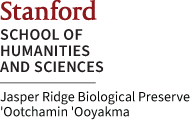Johnson, N.D. and Brain, S.A. (1985) The response of leaf resin to artificial herbivory in Eriodictyon californicum. Biochemical Systematics and Ecology 13: 5-9.
Herbivore damage induces the production of defensive chemicals in many plant species. However, defensive chemicals sometimes have functions other than protection from herbivores, and these chemicals may respond to herbivory differently than those which are primarily defensive. A well-studied group of leaf constituents with multiple functions is the phenolic leaf resins, which protect leaves from herbivores, UV radiation, and possibly excess water loss. The effects of herbivory on phenolic leaf resins were investigated in the chaparral shrub Eriodictyon californicum by artificially damaging leaves during the growing season and subsequently measuring resin content and composition. The authors found that resin content declined in leaves damaged by artificial herbivory; resin declined in undamaged leaves present on the same plant as those heavily damaged; and resin composition, as measured by the ratio of the major components, was unaffected by artificial herbivory.



